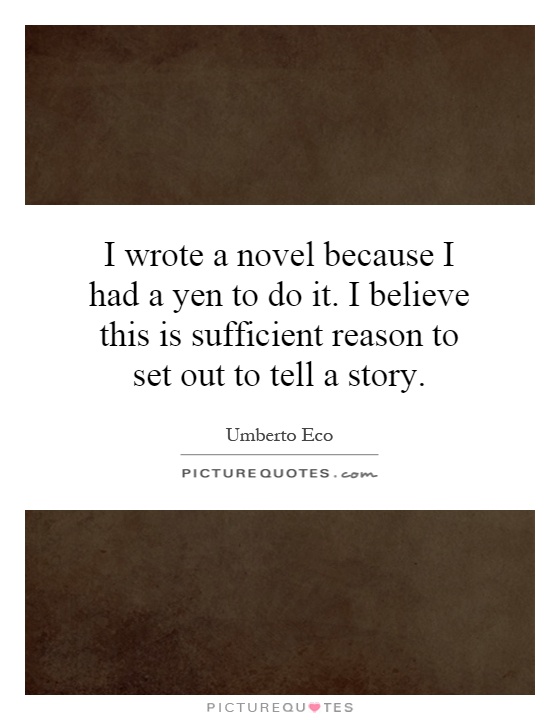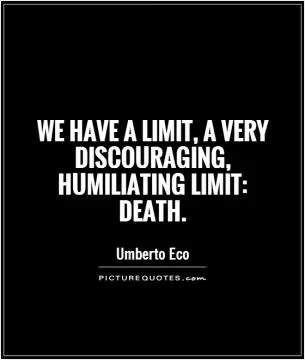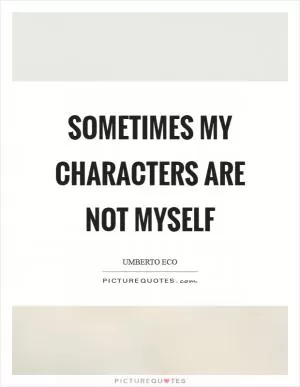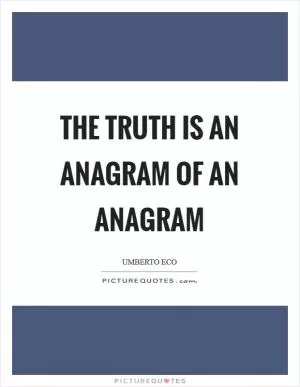I wrote a novel because I had a yen to do it. I believe this is sufficient reason to set out to tell a story

I wrote a novel because I had a yen to do it. I believe this is sufficient reason to set out to tell a story
Umberto Eco, the renowned Italian novelist, philosopher, and literary critic, once famously said, "I wrote a novel because I had a yen to do it. I believe this is sufficient reason to set out to tell a story." This simple yet profound statement encapsulates the essence of Eco's approach to writing and storytelling.Eco was a prolific author, best known for his novel "The Name of the Rose," which became an international bestseller and was later adapted into a successful film starring Sean Connery. Throughout his career, Eco wrote numerous other novels, essays, and academic works, all of which reflected his deep intellectual curiosity and passion for storytelling.
For Eco, writing a novel was not just a creative endeavor but also a way to explore complex ideas and themes. He believed that storytelling was a powerful tool for engaging with the world and making sense of the human experience. In his novels, Eco delved into a wide range of subjects, from medieval history and semiotics to conspiracy theories and religious symbolism. His writing was characterized by its erudition, wit, and intricate plotting, drawing readers into richly imagined worlds that challenged their assumptions and expanded their horizons.
Eco's belief that a "yen" or a strong desire to tell a story was reason enough to embark on the journey of writing a novel speaks to his deep love for the craft of storytelling. He understood that writing a novel was a labor of love, requiring dedication, discipline, and a willingness to grapple with the complexities of language and narrative. Eco's own writing process was meticulous and painstaking, with each word carefully chosen and each sentence crafted with precision.












 Friendship Quotes
Friendship Quotes Love Quotes
Love Quotes Life Quotes
Life Quotes Funny Quotes
Funny Quotes Motivational Quotes
Motivational Quotes Inspirational Quotes
Inspirational Quotes